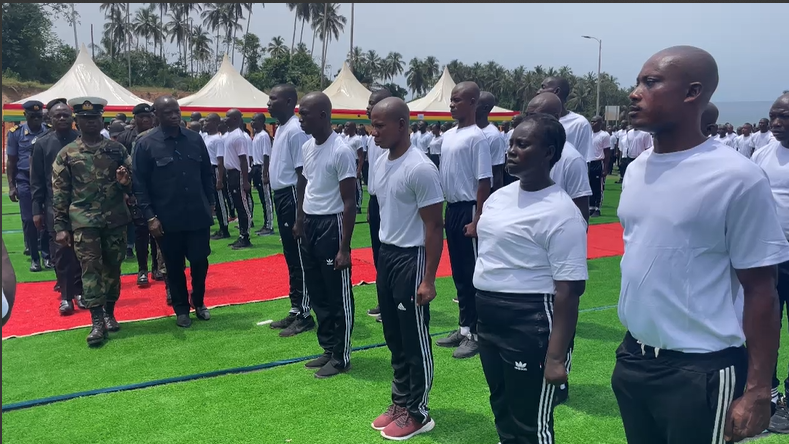In a renewed effort to combat the persistent threat of illegal mining, popularly known as galamsey, the Government of Ghana will, on Monday, April 14, 2025, hold a passing out ceremony for a new batch of Blue Water Guards in the Western Region.
The ceremony marks a key milestone in the rollout of the Blue Water Guard Initiative, a national strategy aimed at restoring polluted water bodies through continuous surveillance and on-the-ground enforcement.
Launched on March 17, 2025, the initiative is designed to deploy trained personnel along rivers and streams to provide 24-hour protection against illegal mining operations. The Blue Water Guards are expected to work closely with the Ghana Armed Forces, the Forestry Commission, and the Water Resources Commission to monitor, report, and respond to activities that threaten the nation’s aquatic ecosystems.
The Blue Water Guard Initiative is the latest in a string of government-led interventions to address galamsey, a complex environmental and socio-economic challenge that has plagued the country for over a decade. While previous measures—including Operation Vanguard and the deployment of River Guards—have had moments of success, critics argue that enforcement has often been inconsistent, plagued by corruption, and at times, politically compromised.
Environmental advocacy groups, including the Media Coalition Against Illegal Mining and A Rocha Ghana, have expressed skepticism about the new initiative. In statements issued after the launch, both organizations questioned the long-term effectiveness of such interventions, citing a lack of transparency, weak monitoring structures, and poor community engagement in past efforts. They argue that without a robust legal framework, political will, and independent oversight, the Blue Water Guards risk becoming yet another well-intentioned but ultimately ineffective program.
Despite the concerns, government officials remain optimistic. According to the Ministry of Lands and Natural Resources, the Blue Water Guard Initiative represents a more coordinated and technology-driven approach, with improved training modules, real-time surveillance tools, and clear accountability systems for personnel.
Monday’s passing out ceremony will officially usher in the first wave of Blue Water Guards tasked with protecting Ghana’s rivers, many of which have suffered severe degradation from illegal mining. As the country watches the new recruits take their oath, the question remains whether this latest initiative can succeed where others have fallen short.


